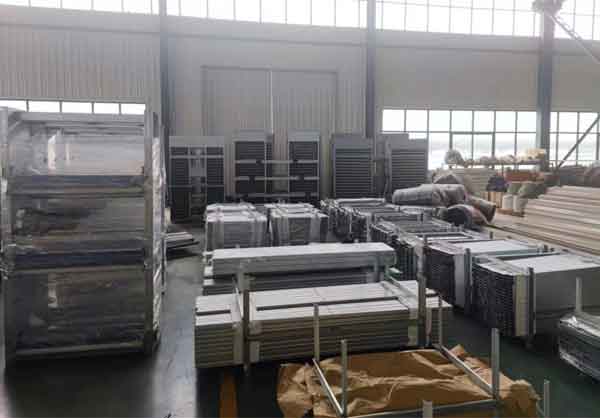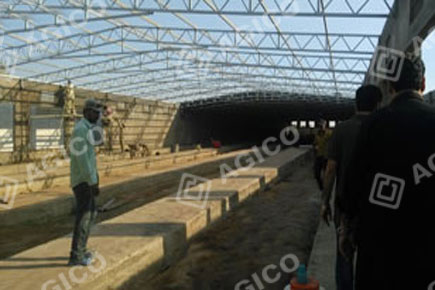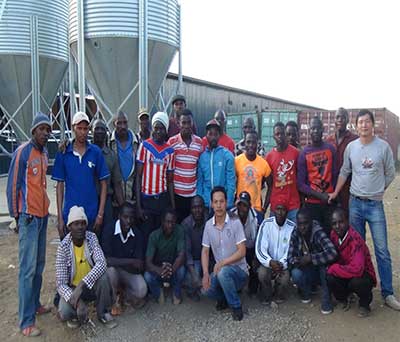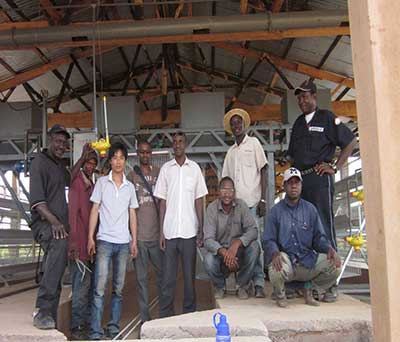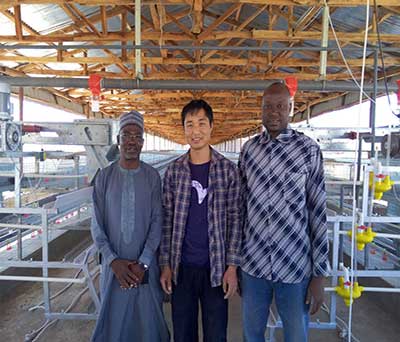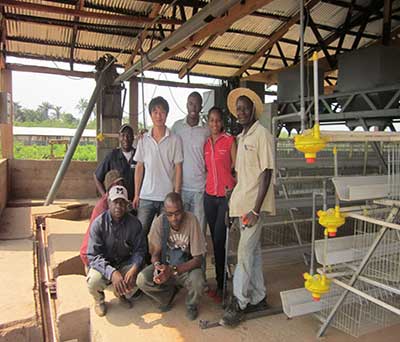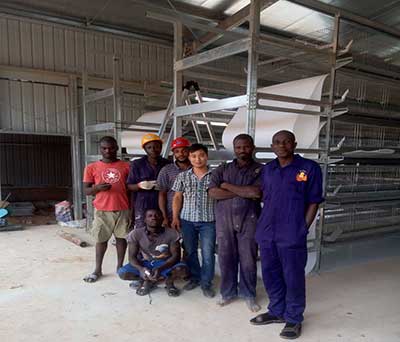Chicken is one of the most consumed meats worldwide, and its production is expected to continue to grow in the coming years. To meet this demand, chicken farming has become an industrialized process that relies on the intensive use of battery cages. Battery cages are small wire cages that hold several birds at once, limiting their movements and natural behaviors. This article aims to shed light on chicken battery cages, their ethical implications, and their impact on the environment.
What are Chicken Battery Cages?
Chicken battery cages are small wire cages where chickens are kept for egg production or meat. These cages are stacked on top of each other in rows, with each cage holding several birds. The cages are designed to maximize space and egg production while minimizing labor costs. However, these cages are often criticized for being cruel and inhumane, as they prevent the birds from engaging in natural behaviors such as spreading their wings, perching, or dust bathing.
The Ethical Implications of Chicken Battery Cages
There is an ongoing debate about the ethical implications of using chicken battery cages. Critics argue that these cages cause physical and psychological harm to the birds, leading to stress, disease, and death. In battery cages, chickens are deprived of space, natural light, and fresh air, leading to health problems such as weakened bones, respiratory infections, and feather loss. In addition, the birds are often subjected to painful procedures such as debeaking, which involves removing the tip of the beak to prevent aggressive behavior caused by the stressful living conditions.
While there are concerns about the use of battery cages in chicken farming, it is worth noting that there are some benefits associated with this method. One of the main advantages of battery cages is that they allow for more efficient use of space and resources, as multiple birds can be housed in a single cage. This can result in lower production costs and higher yields. In addition, battery cages can help to prevent the spread of diseases among the birds, as they are kept in a controlled environment with limited contact with other animals.
There are companies that specialize in the design and manufacture of battery cages, including AGICO. AGICO is a leading provider of poultry equipment, including battery cages, feeding systems, and ventilation equipment. They are committed to providing high-quality products that meet the needs of farmers and promote animal welfare. AGICO’s battery cages are designed to provide a comfortable and safe environment for chickens, with features such as easy access to food and water, adjustable lighting, and efficient waste management systems.
It is important to note that while there are benefits associated with battery cages, there are also concerns about animal welfare, environmental impact, and public health.
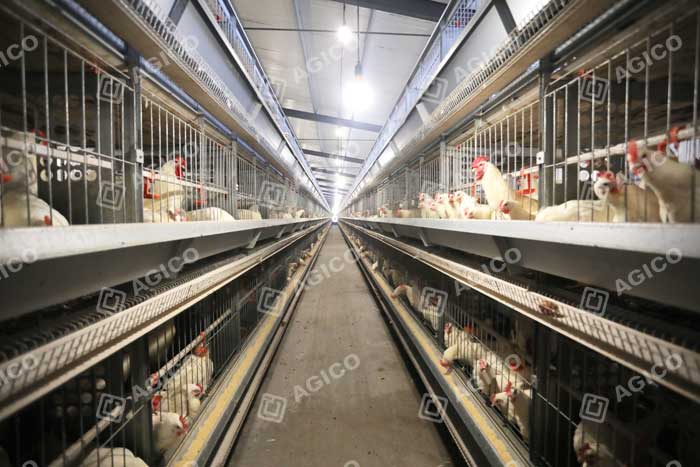
Alternatives to Chicken Battery Cages
There are alternative farming methods that are more humane and sustainable than battery cages. For instance, free-range farming allows chickens to move freely, access natural light, and engage in natural behaviors. This farming method also reduces the risk of diseases and allows for better egg quality. Another alternative is enriched colony cages, which provide more space and amenities such as perches and nesting boxes. These cages are still criticized by animal welfare activists, but they are considered an improvement over traditional battery cages. Especially for cage-free chicken house, there are more benefits, such as the following:
- Better animal welfare: Free-range farming allows chickens to move around and engage in natural behaviors, which promotes better physical and mental health. Chickens in free-range farms have more space to move around, forage, and explore their surroundings, resulting in a happier and healthier flock.
- Higher quality products: Chickens that are allowed to move around and access natural light tend to produce better quality eggs and meat. This is because they are able to engage in natural behaviors and have a more varied and nutritious diet.
- Reduced environmental impact: Free-range farming can be more sustainable and eco-friendly than battery cage farming. For instance, free-range farms tend to use less energy and produce less waste. They also promote biodiversity by creating habitats for other animals and insects.
- Improved public health: Free-range farming reduces the risk of diseases and antibiotic use in chickens, which can have positive impacts on public health. By reducing the use of antibiotics in livestock, we can help prevent the development of antibiotic-resistant bacteria, which can pose a threat to human health.
The Environmental Impact of Chicken Battery Cages
The intensive use of chicken battery cages also has significant environmental implications. For instance, the large-scale production of chicken meat and eggs generates tons of waste, which can lead to water and air pollution. In addition, battery cages require a significant amount of energy to maintain the optimal temperature and lighting conditions, which contributes to greenhouse gas emissions. Furthermore, the use of antibiotics and other chemicals to prevent diseases and promote growth can lead to the development of antibiotic-resistant bacteria, posing a threat to human health. But there are some positive impact of chicken battery cages, one potential positive environmental impact of chicken battery cages is their space efficiency. Because chickens are kept in small cages, battery farms can produce a large amount of meat and eggs using a relatively small amount of land. This can reduce the need for deforestation or other land-use changes to accommodate farming operations. Additionally, battery farms can be easier to manage and control than free-range farms, which may reduce the risk of environmental damage from overgrazing or other livestock-related issues.
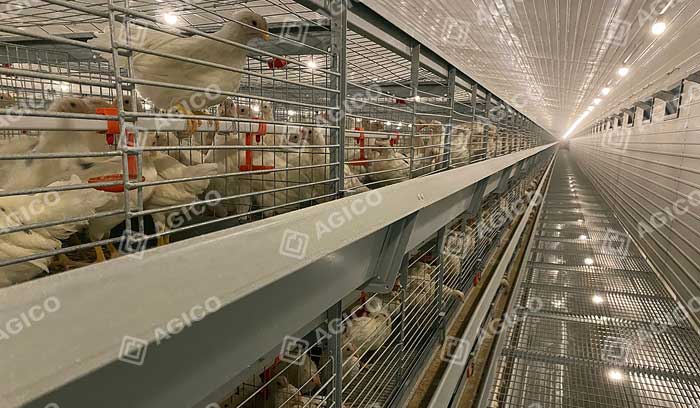
FAQs
Q: Are chicken battery cages legal?
A: Yes, chicken battery cages are legal in many countries, including the US and Europe. However, some countries have banned or restricted their use.
Q: Why are chicken battery cages criticized?
A: Chicken battery cages are criticized for their impact on animal welfare, the environment, and public health. The cages prevent chickens from engaging in natural behaviors, cause stress and disease, generate waste and pollution, and contribute to the development of antibiotic-resistant bacteria.
Q: What are the alternatives to chicken battery cages?
A: Alternatives to chicken battery cages include free-range farming, enriched colony cages, and organic farming.
In conclusion, chicken battery cages are a controversial farming method that raises ethical, environmental, and public health concerns. While they are still legal in many countries, there are alternative farming methods that are more humane and sustainable, such as free-range and enriched colony cages. As consumers, we can make a difference by choosing to buy products from ethical and sustainable sources, supporting local farmers.

